Regency Reader Question
I’m attempting research for a novel, and I’ve got this very odd little situation where a gentleman’s son is looking at getting married prior to completing his secondary education. He is in this situation where he might be about to head off to Oxford or Cambridge, but he’s fallen in love. Is it possible for him to do both? I recognize that at this time, a lot of gentleman’s sons with of a certain inheritance and what not didn’t NEED to go to University, but most did, and certainly I think it would affect his status if he didn’t. But I also realize long engagements were not such a thing, so it is not like he can secure the girl with an engagement and go off to school for no real purpose, either. I can’t seem to find any information on it anywhere, despite how
Thanks for the question, Tawnya, and for being a Regency Reader!
You didn’t say how old the young man is in this instance, so I am going to talk a bit about the constraints and marriage laws.
I also want to challenge the idea that long engagements “were not such a thing.”
The Marriage Act: An Act for the Better Preventing of Clandestine Marriage (1753) required a formal ceremony of marriage, and required that a marriage was only valid if the banns were read and the ceremony was performed in a church or if the couple was able to obtain a license (referred to in most Regencies as a special license). According to the law, anyone under the age of 21 had to have parental consent to be married by license; young people could marry in Church but only if the parents did not forbid the banns. It was legal for a man to marry as young as 14.
People got around the Act by travelling to Scotland, into the border villages, to marry. The development of a toll road passing through Gretna Green made it an obvious choice, and rapidly increased its heretofore obscurity into popularity as a clandestine marriage (or elopement) location. Author Lesley Anne McLeod has a very nice post on elopements from primary sources that show different attitudes to it.
A young man entering University would have been about 17 or 18, and therefore still needing parental consent to be married; the younger marriages tended to be among lower class families who finished any schooling much early and started work at significantly younger ages. A young marriage among the gentry would’ve been odd, and therefore a young engagement would have had either been a betrothal contracted at birth or young age, or for other compelling reasons. That is to say that even in the Regency, people were skeptical of young love as a phase or infatuation.
As for the practicality of engagement or marriage while attending University, I want to first pick at a few of your expressed assumptions.
For the latter half of the 18th century and most of the 19th century, over half those who attended University were either gentry or the clergy, and more than half went into the Church (Looking at History: University education 1800-1870 (richardjohnbr.blogspot.com)). Oxbridge, as the main universities in the Regency, were very much a religious education rather than a liberal arts education. Although the dominant sentiment was the education was for enlightenment rather than career preparedness, the emphasis of curriculum was still very much on a religious life, which is why it would’ve attracted so many people from the clergy or people interested in taking orders. Another possible reason for a young man to choose a University education would be if he expected to take a seat at Parliament; political science was part of the education, and would have been helpful to a young man wanting to understand politics.
We frequently read, in Regency Romances, of the heroes and their mates being University educated, but unless there was a specific tradition of education or intention to enter the Church for an occupation or to take his seat, statistically it would have unlikely that so many men flooded the halls of Oxford and Cambridge. Our modern Western values about higher education naturally, I think, influence this story decision in the case of some authors and why its so prevalent; I think this is a case where it speaks more to current values than the realities of the past. Sir Walpole had not attended university, for instance, and was known to say: “few medical men, few solicitors, few persons intended for commerce or trade, ever dreamed of passing through a university career.”
Enrollment at Universities was estimated to be a few thousand total while at the early 19th Century, the total landed gentry, including gentlemen, knights, barons, and squires is estimated to be around 26,000 (Gentlemen, Gentry and Regency Era Social Class ~ Random Bits of Fascination). While I haven’t been able to yet locate actual enrollment numbers for the Regency era, even a generous inflation of the couple thousand number, taken from contemporary sources, to 5,000 and considering an average of two sons per family with a quarter of those at the appropriate age and added that half the enrollees were actually clergy (so not landed gentry) it would have the percentage of attendees around 20% of the total landed gentry. Obviously these numbers cannot be taken at gospel because they are only meant as a weak proxy, but they nonetheless show that a University education was not necessarily the immediate course for a man from the gentry class.
Young men not inheriting great estates or going into the clergy would have chosen a military or other career which did not necessitate the high costs of University, and even the promise of a great estate would not necessarily require a University education. It is important to understand the scope of education in this era was fairly limited to classics and mathematics with some sciences beginning to make up curriculum as the 19th Century progressed. The rise in interest in a more secular education gave birth to institutions like University College London in the very early Victorian era (1826), which is now the third oldest university in England and was influenced by practices of the University of Edinburgh. In addition to being secular, one of the goals of UCL was to ensure professional training for men, including in civil service, law, engineering, economics, and the medical fields. This emphasizes how much Oxbridge was really a religious education with an emphasis on classics was seen as an “advanced public school” (Looking at History: University education 1800-1870 (richardjohnbr.blogspot.com))We could fall down a very long, winding and interesting rabbit whole about the shift in pedagogy in the 19th Century, but as that doesn’t really answer I will leave off for another day and another post.
Needless to say, I am not sure a gentleman’s son would necessarily have felt pressure to attend University unless he was interested in a career in the Church. It certain would prevent idleness if the young man had no professional intentions, but so would’ve other forms of education including apprenticeship, Grand Tour, or tutelage at home for responsibilities with estate management, agriculture, etc. Its also important to state that in the 18th century, the most common practice for educating young men of the gentry would have been at home with a private tutor or local grammar school, and while the shift to public schools (boarding schools included) started to happen in the 19th century, it would have not began to tip into the majority of gentry boys until the later Victorian years (Rothery, 2009). Home education would have been a very normal course for many upper and middle class men in the era, and the pressure for a University education would have been less cultural norm and more likely a family pressure. If your character is looking for a more liberal arts experience, a Scottish university would answer better. Similarly, the idea of “finding oneself” seemed, from text I have read, to have applied more to lived experience like Town or Grand Tours, or other overseas travels. Again, a lot depends on his circumstances and expectations for inheritance and career path.
Regency romances have also made us believe it was very common for people to marry in their early 20s, but the average age for first marriages in the late 18th century was 28 for men and 26 for women (5 Things Victorian Women Didn’t Do (Much) – HISTORY) although other estimates have it at about 23 or 24 for women (Crafts, 1978). So in the case of your young man in love, it would make sense that family and cultural pressures to hold off on marrying would have been present, and an engagement would have been encouraged over marriage at such a young age (I am presuming 17 or 18). It may also have been that the engagement was kept secret (as in the case of Edward Ferrars and Lucy Steele in Sense and Sensibility) or that a long courtship was really the only permissable method for young lovers constrained by family obligation and expectation.
I should stress that for cultural and financial reasons, engagements were rarely broken once official. Breach of promise suits, being labelled a jilt, and other deterrents ensured a couple would go from contracted obligation to contracted marriage (Nelson, 2015). However, it was not unusual for a long engagement to occur because it really would have been the only way for a young man and woman to get to know each other; Victorian engagements were known to last anywhere from six months to two years and allowed the couple more liberties than courtship, including limited alone time, chaste displays of affection, letters and gifts (http://angelpig.net/victorian/engagement.html#:~:text=Engagements%20lasted%20from%20six%20months,depended%20upon%20the%20groom’s%20finances.). As long engagements, particularly among the gentry, were not uncommon during the Georgian era either (https://www.history1700s.com/index.php/articles/14-guest-authors/2187-engagement-conventions-in-the-18th-century.html), it wouldn’t have been unusual for a couple to be engaged for several years; just booking the church for the ceremony, gettting the banns read, and the trosseau ready would have taken months.
I will say that all of these facts or traditions represent what was common or statistically likely, but that also leaves opportunity for artistic license. I suppose it depends on how it serves your story to have this young man engaged prior to his majority. Is it ultimately a misalliance, that results in some tragedy (you did not specify whether or not it was a romance novel, so I am not assuming a HEA)? Is it a situation like Edward Ferrars where he makes an impetuous match out of idleness that changes the course of his life? Or are you simply wanted to display the passion the couple has, and that they are willing to buck the constraints, including age restrictions, finances, and what likely would have been awkward social situations for a young couple to head off to University together.
Conversely, I don’t see a lot of historical evidence that he couldn’t have contracted an engagement and then left to do his duty or follow tradition by attending Oxbridge. Although, I would urge you to think through his motivations for attending University, based on the data: family pressure, tradition, or the likelihood of entering the clergy might be more compelling motivations than a simple “its what men of his class do”, because I am not so sure the historical record bears that last bit out…I think that might be a modern value superimposed on the past (although I open that up for debate!).
The manifold difficulties in setting up house on a limited budget for a young man still at school would have certainly had some bearing, also, on the likelihood of marriage before the man reached his majority (think of Cathy’s brother in Northanger Abbey) and contracting an engagement without financial prospects would have been equally as daunting to a father concerned over the interests of his daughter.
In conclusion, would it have been possible for him to be engaged and then gone off to Uni? Sure. What about marriage and Uni? Sure. Only you can answer if these somewhat anomalous situations serve your story.
Thanks for the interesting question, I hope the historical info helps a bit, and I encourage everyone to continuing submitting your Regency Reader Questions for us to research!
Enjoy our content? Consider buying us a coffee!
Read more about courtship and engagement etiquette and rituals here: Regency Reader Questions: Courtship, Weddings and Babies – Regency Reader (regrom.com)
Read about annulment and divorce here:Regency Customs: A Bit About Marriage and Annulment – Regency Reader (regrom.com)
Read about attitudes and liabilities for minors marrying: Regency Culture and Society: A Scathing Letter on the Marriage of Minors – Regency Reader (regrom.com)
Read about love matches and marriages: Regency Reader Questions: Marriages and Love Matches – Regency Reader (regrom.com)
Or see more posts about Regency History here: Index of Posts – Regency Reader (regrom.com)
Read more about Victorian engagement etiquette: https://www.mimimatthews.com/2018/05/06/the-etiquette-of-broken-betrothals-victorian-advice-on-ending-an-engagement/
Bibliography
Crafts, N. (1978). Average Age at First Marriage for Women in Mid-Nineteenth-Century England and Wales: A Cross-Section Study. Population Studies, 32(1), 21-25. doi:10.2307/2173838
Nelson, H. (2015). The Law and the Lady: Consent and Marriage in Nineteenth-Century British Literature. Purdue University Theses.
Outhwaite, R. (1973). Age at Marriage in England from the late Seventeenth to the nineteenth Century. Transactions of the Royal Historical Society, 23, 55-70. doi:10.2307/3678872
Rothery, M. (2009). The Reproductive Behavior of the English Landed Gentry in the Nineteenth and Early Twentieth Centuries. Journal of British Studies, 48(3), 674-694. Retrieved January 7, 2021, from http://www.jstor.org/stable/27752575

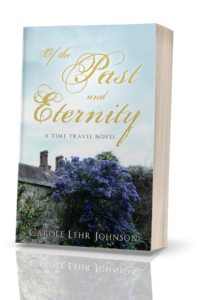
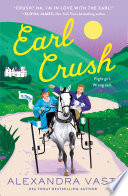
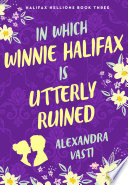
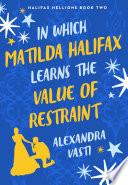
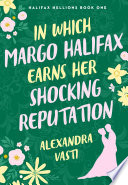

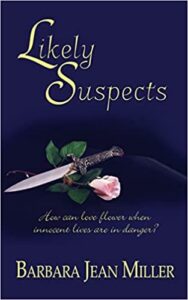
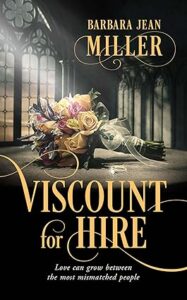



Excellent article. I am now going to fix this historical detail “flaw” in my current novel. I think the Grand Tour is far more romantic anyway, and in sync with the attitudes of the day.
So glad it was helpful!